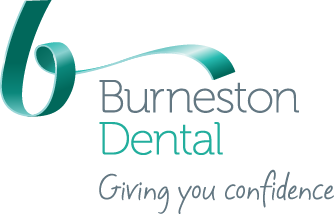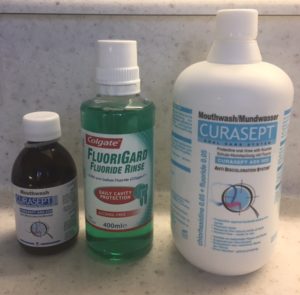The media is full of dental products and advice. Very often this advice is sponsored by the makers of the products that are being advertised. It is often difficult for us as the consumer to differentiate between what is sponsored advice and what is independent advice. At Burneston Dental we often get asked by our patients whether they should use a mouthwash. For this reason, we thought we would write a shot blog about mouthwashes.
We at Burneston Dental don’t routinely recommend the use of mouthwashes. It is normally sufficient to clean your teeth using floss/interdental brushes and a toothbrush with a fluoride containing toothpaste. It is important that at the end of brushing you do not rinse out your mouth with water but rather just spit out any excess toothpaste that is in your mouth. It is then advisable not to eat, drink or smoke anything for ideally 30 to 60 minutes. This allows the ingredients of the toothpaste, especially the fluoride to act on your teeth.
We would recommend that a mouthwash is used in the following situations:
- Individuals who have difficulties with dexterity
- Individuals who are prone to developing caries
- individuals who have gum problems such as gingivitis and periodontitis
- Individuals who suffer from sensitive teeth
- Adults and children with dental braces
- Athletes with a high sugar diet
- Individuals with certain medical conditions or that are undergoing treatments such as chemotherapy
- Hospital patients
The mouthwashes that we normally find beneficial to our patients are the ones that include fluoride such as Fluorigard and the ones that contain Chlorhexidine such as Curasept. Fluoride containing mouthwashes help to prevent the development of caries. Chlorhexidine containing mouthwashes are beneficial to individuals that have problems with their gums.
Click here to find out more about the types of mouthwashes that are available.
It is important to note that mouthwashes alone do not normally cure dental disease. Active dental treatment is usually also needed.
Try and avoid mouthwashes that contain alcohol. Alcohol can be an irritant. Nowadays most brands come in non-alcohol versions.
Children should only use mouthwashes that are prescribed by a dentist and then only under direct adult supervision. Mouthwashes, even those designed for children, are not meant to be swallowed and young kids may have difficulties understanding that.
It is important to remember that mouthwashes are an adjunct to brushing and flossing your teeth. They do not replace brushing and flossing.
Contact us today to ensure that you have good dental health!





 © Copyright 2013 Burneston Dental . All rights reserved
© Copyright 2013 Burneston Dental . All rights reserved